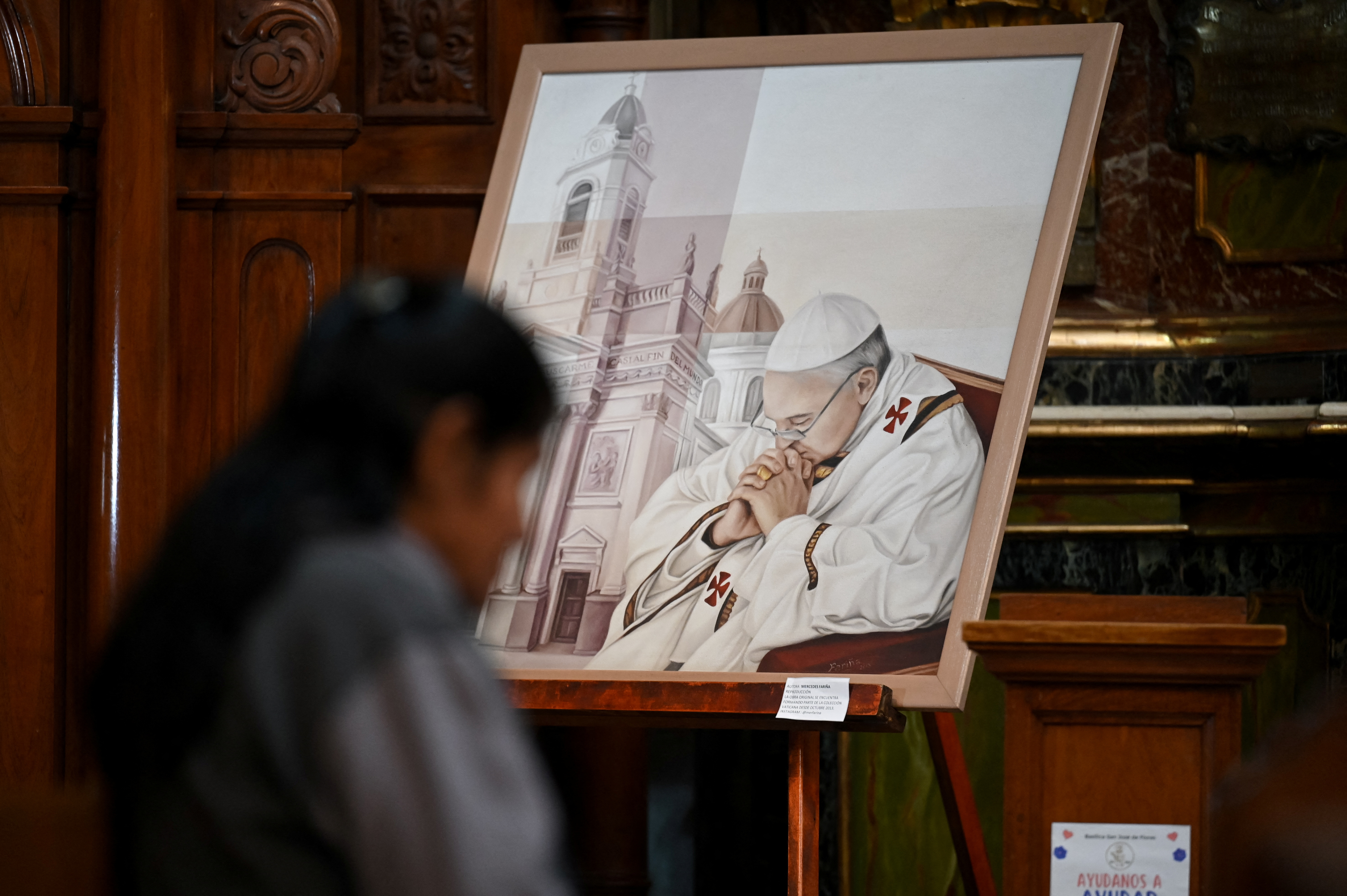By the time the sun set on Easter Sunday, the bells of St. Peter's Basilica in the Vatican had rung out a final farewell.
Early next morning, Pope Francis, 88, was gone.
A day after delivering his final Easter message, the head of the Catholic Church, officially known as Vicarius Iesu Christi (Vicar of Christ), breathed his last quietly, leaving behind a world more fractured than he had found it.
The son of a railway worker, the first pope from the Southern Hemisphere, first non-European to wear the white papal robes in over a millennium.
And yet, beyond the titles and firsts, he became something deeper — a moral compass in a world unmoored, and a quiet force of conscience.
Within minutes of the news breaking, tributes began to flood in from across the world — warm words, reverent gestures, the language of loss.
US President Donald Trump promptly ordered American flags to be flown at half-staff as a "mark of respect for the memory" for Pope Francis.
"He was a good man, worked hard. He loved the world, and it's an honor to do that," Trump said.
Public figures across the American political spectrum posted heartfelt eulogies. But few mentioned the war in Gaza he'd tried so hard to stop.
"Rest in Peace, Pope Francis," read the White House message on X, the platform formerly known as Twitter.
US Vice President Vance, posted a personal note: "I just learned of the passing of Pope Francis. My heart goes out to the millions of Christians all over the world who loved him," he wrote.
"I was happy to see him yesterday, though he was obviously very ill. But I'll always remember him for the below homily he gave in the very early days of COVID. It was really quite beautiful. May God rest his soul."
Former President Biden, long open about his Catholic faith and accused by fellow administration officials of "undeniable complicity" in Gaza genocide, said: "He was unlike any who came before him," and went on, "Above all, he was a Pope for everyone. He was the People’s Pope — a light of faith, hope and love."
'This is cruelty, this is not war'
As tributes poured in across political and social circles, from top leaders to celebrities and schoolchildren in far-flung parishes, the tone was unified: reverence, affection, nostalgia. He was the people's pontiff — one who spoke against the greed of capitalism.
But it was his unflinching stance on Gaza — raw, urgent, ignored — that he held till his last breath.
From his hospital bed in the final months of his life, the Pope kept in touch with those in besieged Gaza. Sometimes by text, sometimes via video call.
According to Vatican officials, he insisted on hearing directly from the community — the kids and the wounded. While some world leaders issued cautious statements or none at all, Pope Francis said what they would not.
"I appeal to the warring parties: call a ceasefire, release the hostages and come to the aid of a starving people that aspires to a future of peace," he declared in his Easter Sunday message, delivered less than 24 hours before his death.
"I express my closeness to the sufferings of Christians in Palestine and Israel, and to all the Israeli people and the Palestinian people," he continued.
"I think of the people of Gaza, and its Christian community in particular, where the terrible conflict continues to cause death and destruction and to create a dramatic and deplorable humanitarian situation."
Remark on Gaza genocide
For months, the Pope had been warning of what he feared Gaza was becoming.
"In the Middle East, where the open doors of nations like Jordan or Lebanon continue to be a salvation for millions of people fleeing conflicts in the region: I am thinking above all of those who leave Gaza in the midst of the famine that has struck their Palestinian brothers and sisters," he wrote in a passage from Jubilee 2025, a reflective text penned just weeks before his final illness.
Then came the line many wish he hadn't written — or at least pretend he didn’t.
"According to some experts," Pope Francis wrote, "what is happening in Gaza has the characteristics of a genocide. It should be carefully investigated to determine whether it fits into the technical definition formulated by jurists and international bodies."
It was not the first time.
In December, reacting to reports of children buried beneath rubble, of hospitals bombed and aid blocked, Francis said simply, "This is cruelty, this is not war."
And yet, in Washington, the same leaders who now call him a light, a saint, a symbol — had little to say then.
None echoed his words. None called for genocide investigations. None offered a pause in weapons shipments.
The Pope's moral clarity was inconvenient.
And now the Patriarch of the West is gone.

A man of unusual courage
In the days ahead, as the Vatican prepares for a funeral that will draw heads of state, cardinals, world media, and millions of ordinary mourners, the world will grieve a man of unusual courage.
During his life, the Pope became a moral outlier in a world that too often trades conscience for convenience.
However, amid the wreckage of Israel's genocidal war on Gaza and the cold machinery of politics, as Tel Aviv — aided by US arms supplies — played chess with Palestinian lives, the Bishop of Rome kept his gaze on the broken.
Not the borders. Not the power.
But the people of Gaza — the starving, the bombed, the voiceless.
In the Pope's own words, "I am saddened by the resumption of heavy Israeli bombing on Gaza, causing many deaths and injuries. I call for an immediate halt to the weapons, and for the courage to resume dialogue."



















